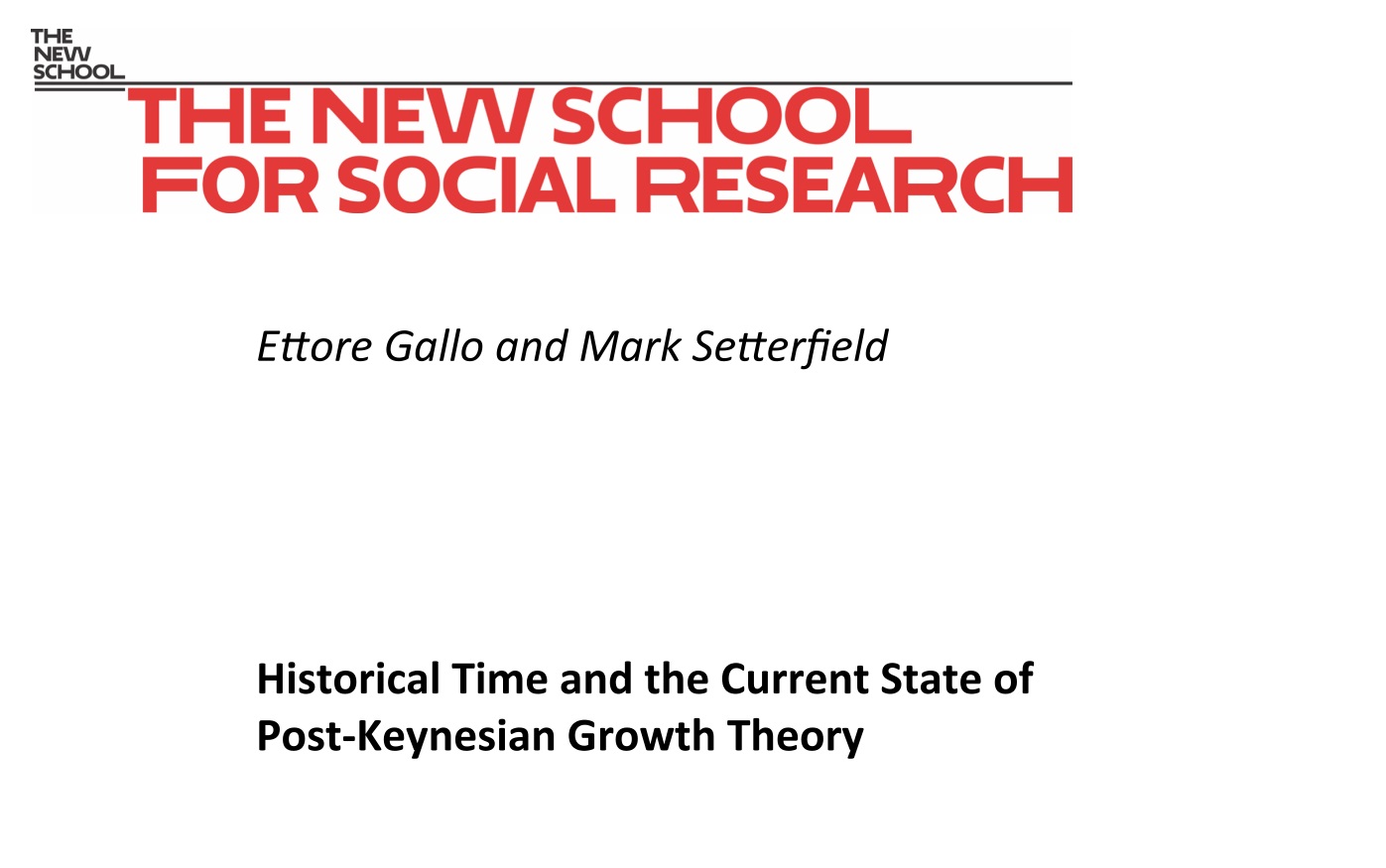Working Paper - Historical Time and the Current State of Post-Keynesian Growth Theory

New Working Paper - Historical Time and the Current State of Post-Keynesian Growth Theory
The paper I co-authored with Mark Setterfield “Historical Time and the Current State of Post-Keynesian Growth Theory” is now out in the Economics Department Working Paper series of the The New School for Social Research
You can find it on RePEc: here
Here is the abstract:
This paper discusses Joan Robinson’s remarks on the importance of historical time in economic analysis. On the one hand, Joan Robinson expressed skepticism with equilibrium analysis as such, arguing that as soon as economists take into account the uncertainty of expectations, history needs to replace equilibrium. On the other, Robinson stressed that, while building economic models, one must be aware that it is historical time rather than logical time that rules reality, warning against the methodological mistake of confusing comparisons of equilibrium positions with a movement between them. We argue that these criticisms point to the possibility of thinking in terms of two different ‘levels’ of historical time – a higher (fundamentalist) level, and a practical (and more analytically tractable) lower level. Using this distinction, we provide a taxonomy of existing strands of post-Keynesian growth theory that are consistent with the concept of low-level historical time. It is shown that despite appearances to the contrary, much post-Keynesian growth theory displays fidelity to Joan Robinson’s concern with the importance of historical time.
